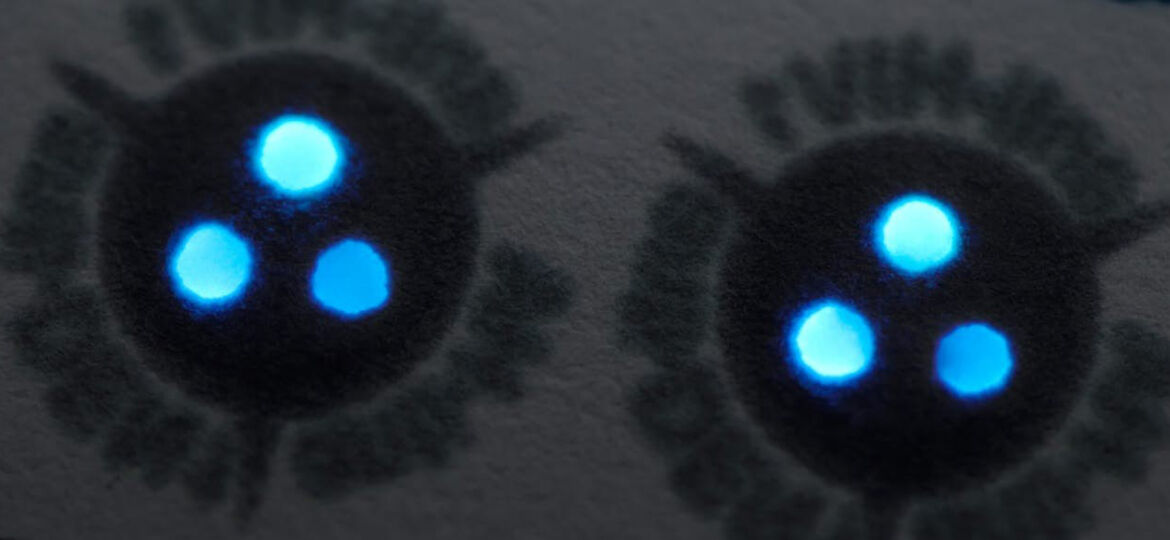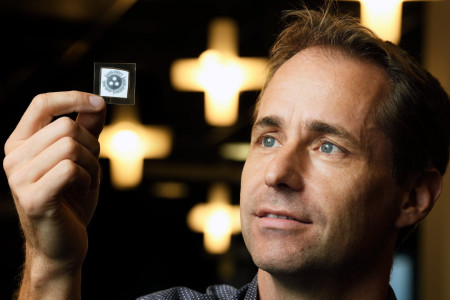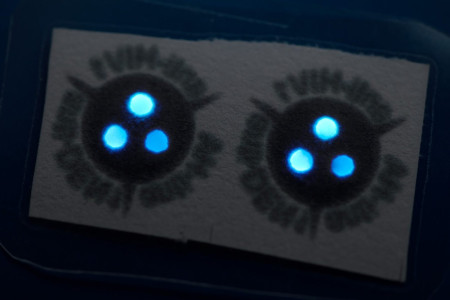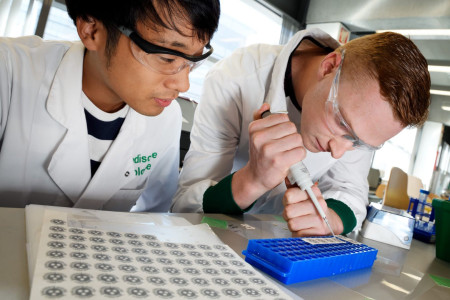
WHY THIS MATTERS IN BRIEF
Not everyone has access to a lab that can process blood tests, so this breakthrough will help people in developing nations diagnose disease faster.
Dutch and Japanese scientists have developed an inexpensive new paper-based blood test kit that quickly determines if patients have infectious diseases. Among other things, it could be of great help to clinicians in developing nations who don’t have access to traditional lab equipment, and individuals who don’t have quick access to healthcare services.
Created in a collaboration between the Netherlands’ Eindhoven University of Technology (TU/e) and Japan’s Keio University, the square paper device requires users to simply place a drop of blood on a marked target area, wait 20 minutes, then turn the paper over and check the color of one of three glowing spots on its underside.
Upon initially being deposited on the paper, the blood mixes with a TU/e-made luminous sensor protein contained within the spot, creating a biochemical reaction that causes the spot to emit blue light … at first, that is.
If the blood is from a non-infected individual, a second step in the reaction will cause the light to subsequently turn green. Should the person be infected, though, antibodies in their blood will bind to the sensor protein, blocking the second step to a certain extent – as a result, the light will at least partially remain blue. A strip containing the kits is pictured below.
Using their smartphone’s camera and an app, clinicians can then analyze the color of the spot to determine just where it falls on the blue-to-green spectrum. This will indicate the concentration of the antibodies in the blood, and thus the severity of the infection. Basically speaking, though, it’s a matter of the greener the better.
Each of the paper’s three spots can be tweaked to react to specific antibodies associated with specific infectious diseases, allowing users to check for three diseases at once. Using that approach, the technology has successfully been used to simultaneously test a single blood sample for HIV, flu and dengue fever so the technology’s potential is huge.
The research, which was led by TU/e’s Prof. Maarten Merkx, is described in a paper that was recently published in the journal Angewandte Chemie. It is hoped that the test kits will be commercially available within a few years.



















